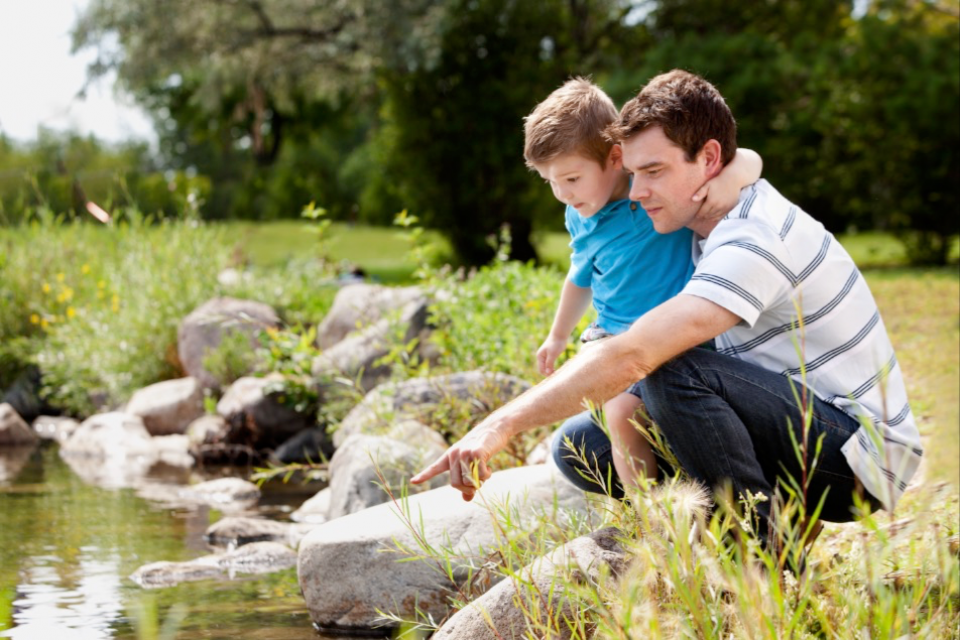Why Divorce is So Hard on Children

Divorce is hard for children of all ages. However, how a child responds to their parents’ divorce may be largely based on the child’s age and development. In many divorces involving children, the largest and most litigated contention is the custody arrangement. Many parents in divorce cases are more concerned with their child’s residential schedule than they are with the division of assets. That being said, this mentality can eventually turn toxic as both parents vie for larger shares of time with their children, sometimes putting the child directly in the middle of the debate.
Many divorces are inherently adversarial as an unfortunate consequence of how the litigation process works. Parents are essentially pitted against each other from the very beginning, and this can be very hard on children who are already struggling with the idea of divorce itself. This is especially true when the biggest conflict in the divorce is the final parenting time arrangement; children go through enough as it is during their parents' divorce without having to feel like they are the very center of the debate.
Children starting as young as infants can feel the effects of a divorce, and this can lead to irritability and clinginess early in a child’s life. As children grow older and begin to form a more concrete understanding of the world around them, divorce can cause extreme turmoil, as the child’s life changes completely to a new schedule between two homes.
Younger children tend to be more self-centered because they assume that the world perceives everything exactly as they do. This makes divorce hard on children from ages 2 to 7 because the divorce may feel like a result of something that they have done personally. While unfounded, these feelings of blame a child may place on itself can lead to problems with regression, sleep, abandonment issues, and concerns about uncertainty.
As children grow older, they may begin to feel as though it is their responsibility to patch things up between their parents. At this point, children have a hard time accepting the permanence of a divorce, and it is common for children to believe that they can fix the situation themselves. For children in this stage, the conclusion of the divorce may be extremely difficult to understand, and this may be the hardest part of the entire divorce process for them.
By the time children have reached adolescence, they have developed a considerably larger understanding of how the world actually works. Some adolescents tend to be quick to aggression and anger, and this can lead a child to become rebellious or practically immune to discipline. At this point, parents can often feel as though their child is an adversary. Children of this age can sometimes pick sides between their parents based on perceived misconduct during the marriage or possibly due to one parent having more influence over the child. It is important for parents with children at this age to be careful about attempting to sway a child to their side. While gaining an adolescent’s vote may feel like a significant win in the divorce, encouraging this behavior can be very harmful to an adolescent’s development because children need involvement from both parents in order to maintain healthy growth.
While every age group is different, parents of children of all ages can minimize the effects a divorce can have on a child by establishing an open line of communication. Being upfront about certain aspects of the divorce early on can help immensely down the road for younger children. For older children, setting clear guidelines and requiring more responsibility as the child becomes more autonomous may be the key to subduing an outright rebellion.
Most importantly, parents need to be mindful of their specific child’s needs. While custody proceedings can quickly devolve into contention, it is important that parents draw a clear line between what happens in court and what happens at home. Often, the best route a parent can take, regardless of the outcome of the custody arrangement, is to encourage a child to enjoy the time they spend with the other parent. It can be very hard for a parent to put aside their differences after all that was said and done during the divorce, but for most children, this is exactly what needs to be done. After all, the child had absolutely nothing to do with the divorce; why should the child have to take sides?
Author's Bio: Trevor McDonald is a freelance content writer who has a passion for writing and is currently writing for the law firm of David J. Crouse & Associates, PLLC. He's written a variety of education, travel, health, and lifestyle articles for many different companies. In his free time, you can find him running with his dog, playing his guitar or outside enjoying about any type of fitness activity imaginable.
NOTE: Many state and federal laws use terms like ‘custody’ when referring to arrangements regarding parenting time and decision-making for a child. While this has been the case for many years, these are not the only terms currently used to refer to these topics.
Today, many family law practitioners and even laws within certain states use terms such as ‘parenting arrangements’ or ‘parenting responsibility,’ among others, when referring to matters surrounding legal and physical child custody. You will find these terms as well as custody used on the OurFamilyWizard website.